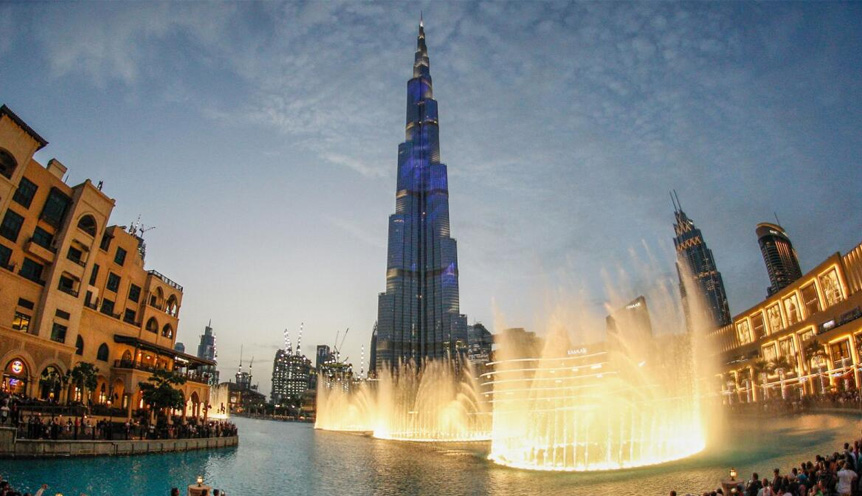
Dubai's heart and the world's tallest building, Burj Khalifa, is an epitome of architectural brilliance and marvel. Since its inauguration, it has captivated travelers worldwide, holding an impressive total of eight world records. This mixed-use skyscraper is not only a visual masterpiece but also houses numerous commercial, residential, and hospitality ventures. While marveling at its towering presence, it's worth diving into some fascinating facts about Burj Khalifa that will make your visit truly unforgettable.
Unveiling the Wonders of Burj Khalifa
Explore the hidden secrets and breathtaking aspects of this iconic structure, which stands tall among the world's most renowned landmarks. Here are some intriguing facts about Burj Khalifa that highlight its incredible achievements and fascinating history.
1. The World's Tallest Building

Standing at an awe-inspiring height of 828 meters (2,716.5 feet), Burj Khalifa is undeniably the tallest building in the world. It boasts over 160 stories, making it twice as tall as the Empire State Building and three times the height of the Eiffel Tower. At level 148, it features the highest observation deck globally, offering mesmerizing views of Dubai from 555 meters above the ground. Don't miss dining at Atmosphere, the highest restaurant in the world, perched on the 122nd floor at 442 meters.
2. Inspired by Islamic Architecture
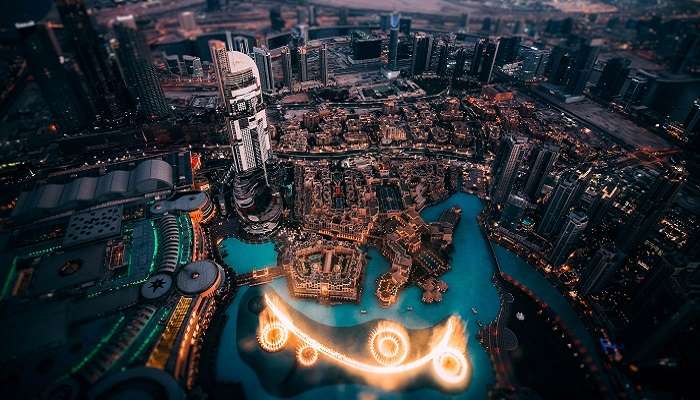
Burj Khalifa's architectural design is a tribute to Islamic art and culture. Its unique shape is influenced by the Hymenocallis flower, also known as the Spider Lily. The building features a Y-shaped floor plan, maximizing views of the Arabian Gulf. When viewed from different angles, the tower's silhouette resembles the onion-domed structures characteristic of Islamic architecture. The interior, designed by the Chicago office of Skidmore, Owings & Merrill LLP, incorporates local cultural elements and exudes luxury and sophistication.
3. The Fastest Elevators in the World

One of the most astounding aspects of Burj Khalifa is its elevators. These double-decker elevators travel at a speed of 10 meters per second, making them the fastest in the world. They cover a staggering 140 stories, taking less than a minute to reach the 124th floor. Initially planned as triple-decker elevators, the final design accommodates 12 to 14 passengers per cabin, ensuring a swift and smooth journey to the top.
4. Holder of Multiple World Records
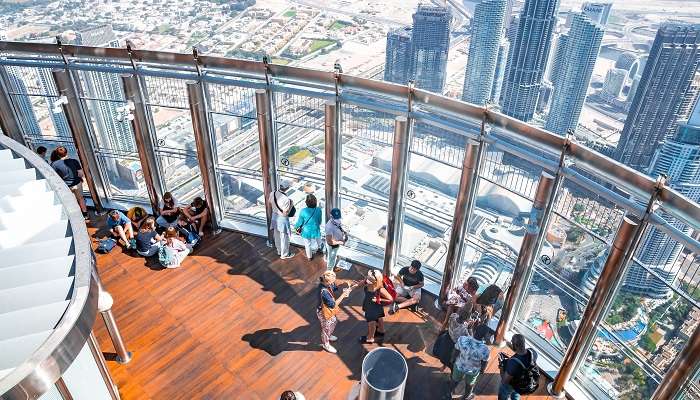
Beyond being the tallest building, Burj Khalifa has earned several other world records, cementing its status as a global icon. These records include:
- The tallest freestanding structure.
- The highest number of stories in a building.
- The highest occupied floor.
- The highest outdoor observation deck.
- The longest elevator travel distance.
- The largest number of workers on a construction site, with over 12,000 people.
5. Luxurious Gems Within
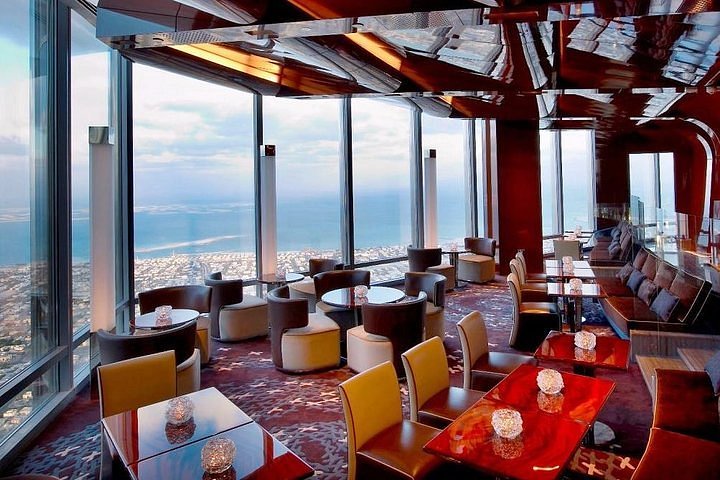
Burj Khalifa houses the luxurious Armani Hotel, the second of its kind in the world, offering unparalleled hospitality and lavish accommodations. Another highlight is At.mosphere, the highest restaurant globally, providing delectable cuisine and spectacular views of the city skyline from 441 meters above ground.
6. Impressive Size and Capacity
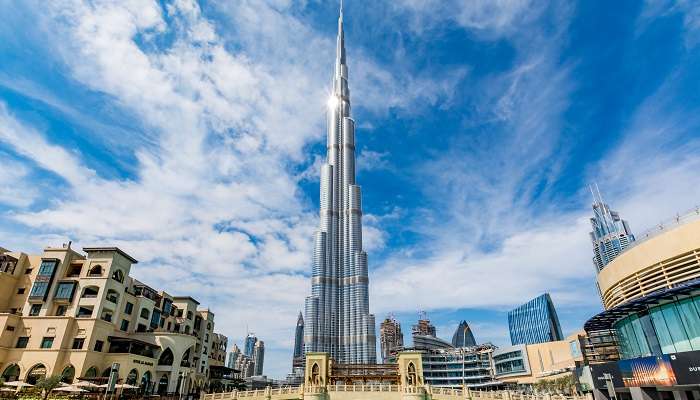
Spanning a total area of 3,331,140 square feet (309,473 square meters), Burj Khalifa comprises 163 floors, 2,957 parking spaces, 900 apartments, and 304 hotels. Its façade, made with 26,000 hand-cut glass panels, is designed to conserve energy and reduce heat transfer. The construction utilized over 330,000 cubic meters of concrete and aluminum, equivalent to the weight of five A380 aircraft.
7. Commitment to Sustainability
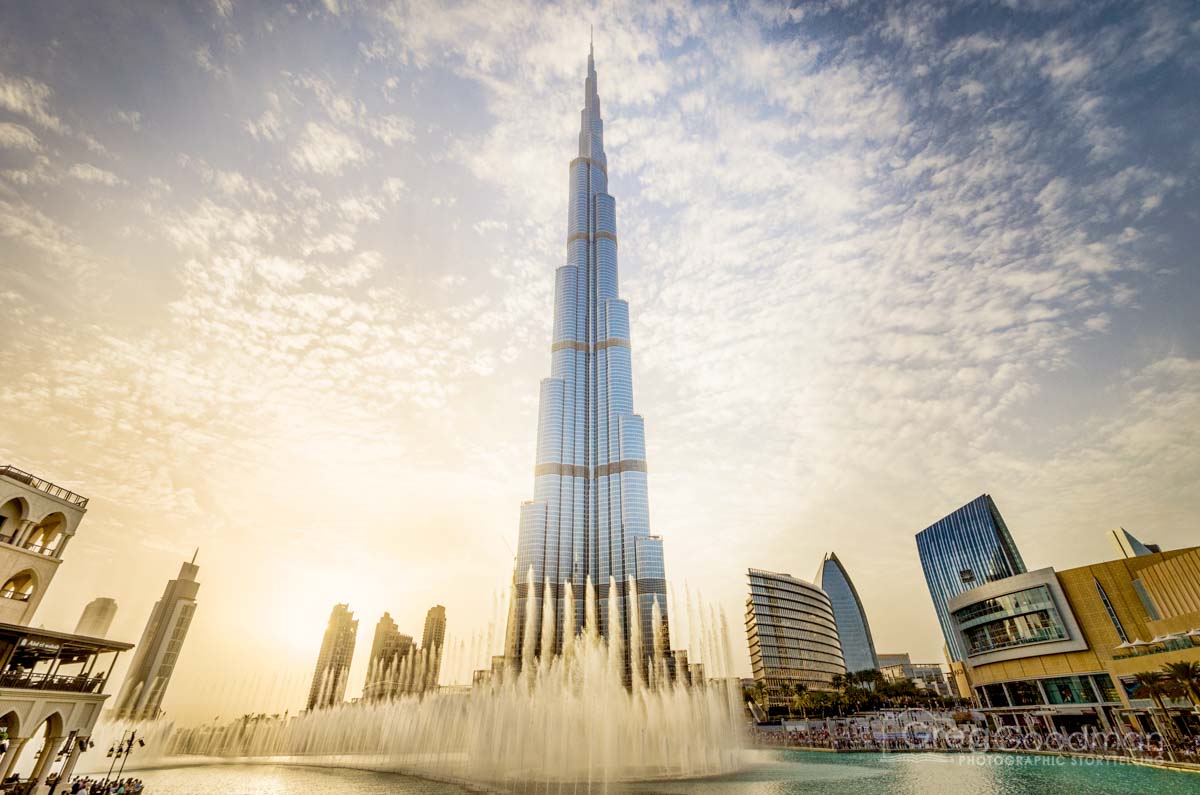
Burj Khalifa's design emphasizes sustainability, both during construction and in its ongoing operations. Annually, 15 million gallons of water are sustainably harvested for irrigation, cooling, and the Dubai Fountain. Solar panels generate enough energy to heat 140,000 liters of water daily. The outer cladding is coated with silver to enhance insulation, reducing the building's overall energy consumption.
The Fascinating History of Burj Khalifa
Burj Khalifa's history is as remarkable as its structure. Before its construction, Dubai's economy relied heavily on oil. The decision to build Burj Khalifa was driven by the desire to create a global icon representing Dubai's modernization and technological advancements, attracting tourists worldwide. Construction began on January 6, 2004, and was completed in 2009, taking nearly five years. Named after Sheikh Khalifa bin Zayed Al Nahyan, the UAE's president and Abu Dhabi's ruler, the tower overcame numerous challenges to become a testament to the nation's ambition and prosperity.
The Best Time to Visit Burj Khalifa
For an unforgettable experience, visit Burj Khalifa during non-peak hours. The best times are early morning (8:30 AM to 10:00 AM), early afternoon (1:30 PM to 3:30 PM), or late evening before closing (around 8:30 PM). These times typically see fewer crowds, allowing you to explore the tower more comfortably. The sunrise tour is particularly popular but can be busy, so plan accordingly.
Conclusion
Embodying innovation and progress, Burj Khalifa is a symbol of Dubai's transformation and a beacon for curious minds worldwide. These intriguing facts about Burj Khalifa highlight its incredible journey from conception to completion. On your next trip to Dubai, keep these insights in mind to appreciate this magnificent structure from a new perspective. Happy travels!
